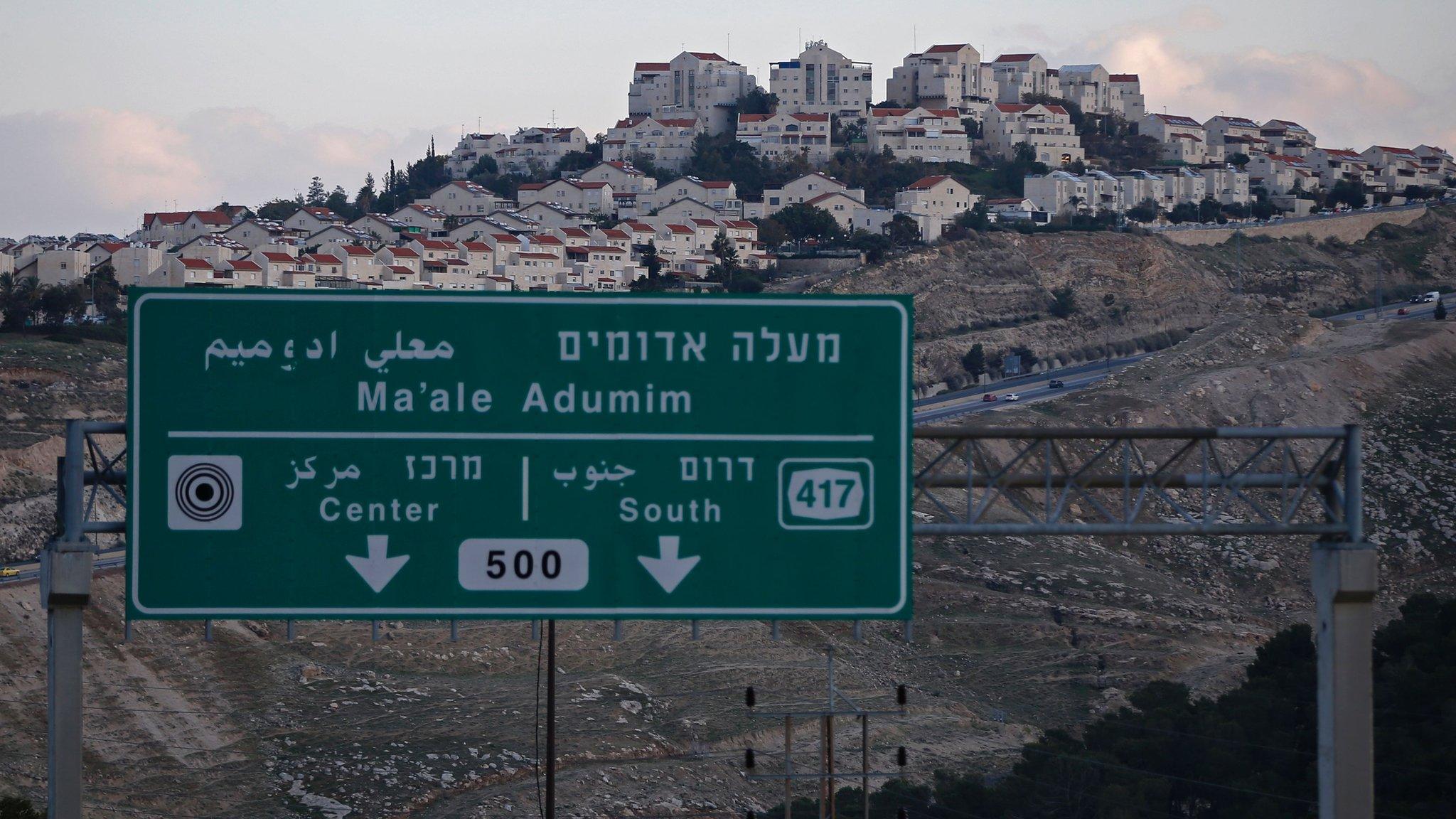Trump urges Israel to 'act reasonably' on settlements
- Published

Settlements are considered illegal under international law, though Israel disputes this
US President Donald Trump has told an Israeli paper that settlement expansion in the occupied West Bank is not "good for peace" with the Palestinians.
In an interview with Israel Hayom, Mr Trump said a peace deal was possible but urged Israel to "act reasonably".
Israel has advanced plans for 6,000 new settler homes since the inauguration last month of Mr Trump, whom it sees as more sympathetic than his predecessor.
Palestinians have warned that chances for peace are being destroyed.
More than 600,000 Jews live in about 140 settlements built since Israel's 1967 occupation of the West Bank and East Jerusalem - land the Palestinians want for a future state. The settlements are considered illegal under international law, though Israel disputes this.
During the US presidential election campaign, Mr Trump presented himself as a staunch supporter of Israel, and he criticised Barack Obama in December for choosing not to veto a UN Security Council resolution declaring that settlements had "no legal validity" and were an obstacle to peace.
During the first two weeks of Mr Trump's presidency, there was no comment from the White House as the Israeli government approved the construction of new homes at settlements across the West Bank and East Jerusalem.
Why aren't the Israelis and Palestinians talking?
But the White House last week when the Israeli government announced plans to build an entirely new settlement, after it had to evacuate an unauthorised settler outpost built on privately-owned Palestinian land.
On Monday, the Israeli parliament approved a controversial law that would allow the government to retroactively legalise almost 4,000 settler homes built on private Palestinian land, despite the attorney-general warning that it was unconstitutional.
Speaking to Israel Hayom ahead of next week's visit to Washington by Prime Minister Benjamin Netanyahu, Mr Trump expressed the belief that he could broker a peace deal after decades of failed negotiations.
"I want Israel to act reasonably in the peace process and that it will finally happen after so many years.
"And maybe there will even be a possibility of a bigger peace than just Israel and the Palestinians," he was quoted as saying in the interview, which was .
"There is limited remaining territory. Every time you take land for a settlement, less territory remains. I'm not someone who believes that advancing settlements is good for peace. But we are examining a number of options," he added.
Mr Trump said he was still "learning" about the issue of moving the US embassy to Jerusalem
Mr Trump also said he was thinking "seriously" about his campaign promise to move the US embassy from Tel Aviv to Jerusalem, a step that is fiercely opposed by the Palestinians.
"I'm learning the issue and we'll see what happens. It's not an easy decision."
The US and many other countries have long said that the status of Jerusalem is dependent on a final peace agreement, and that moving embassies there would prejudge the outcome.
Israel claims sovereignty over the entire city, and regards it as its eternal and undivided capital. The Palestinians want East Jerusalem as the capital of a future state of Palestine.